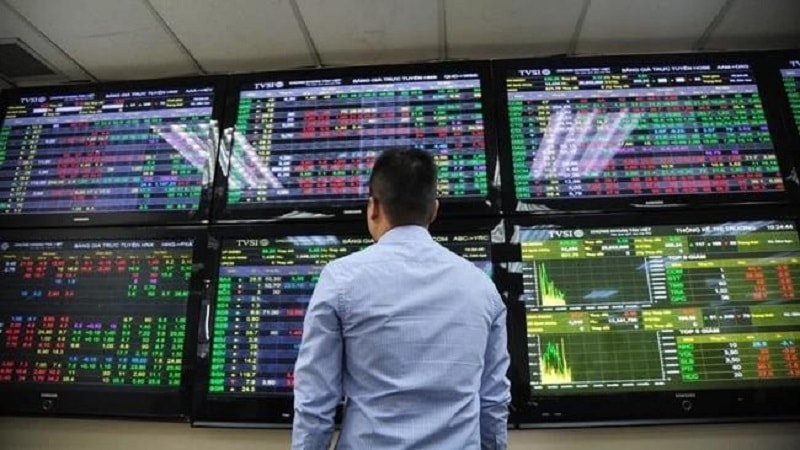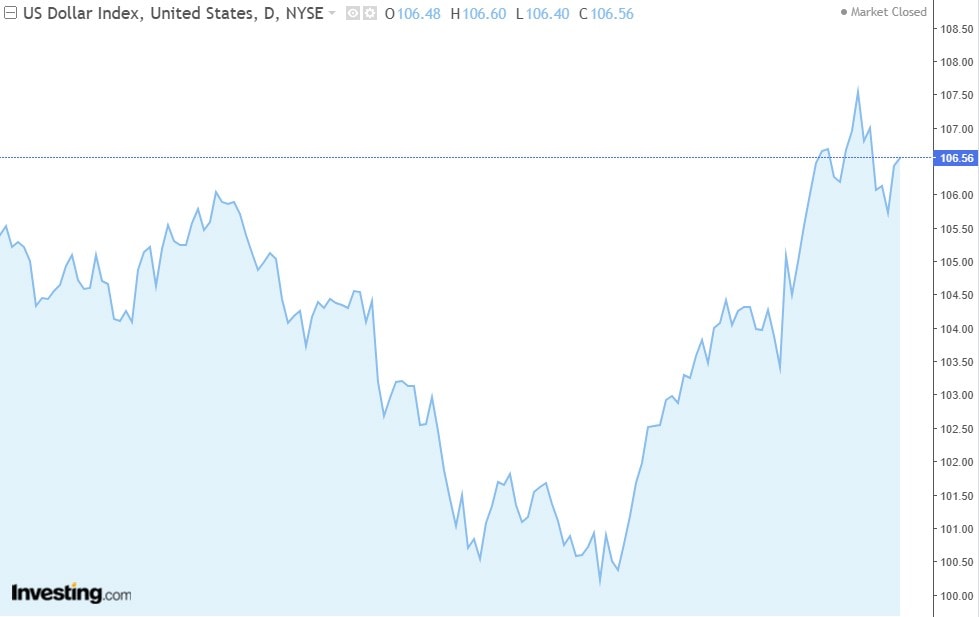What opportunities for stock investors by year-end?
After achieving 1,250 points, the VN-Index is predicted to reach 1,300 points by the end of 2024. What prospects exist for investors?
The Chief Market Strategist of VPBank Securities (VPBankS), Mr. Tran Hoang Son, asserts that investors who purchased equities at 1,200 and kept them from November to April of the subsequent year have a good chance of making money at higher prices. As a result, investors might still get a "Tet gift" (albeit, in this perspective, the "gift" wouldn't be realized until after the next Lunar New Year).

The stock market is expected to soon regain balance. Illustration: Itn.
Mr. Son talked about the recent changes in the Vietnamese stock market (VN-Index) and pointed out a noticeable change in capital flows. Frontier markets are impacted as big markets like the U.S. and Europe expand. Capital flows from Asia and other emerging countries have returned to the U.S. and Europe, particularly the U.S., as a result of the strong performance of the U.S. market and the strong USD.
The United States draws substantial foreign investment when the USD appreciates. The S&P 500 and Dow Jones are at record highs, indicating that the U.S. market is mostly unscathed by the market turmoil brought on by the Russia-Ukraine crisis and Trump's new tax policy measures, he said.
Additionally, he pointed out that low market liquidity and a rising DXY index have created short-term caution for the VN-Index. Despite recovering close to 1,250 points—up about 40 points from its low—liquidity has yet to show signs of recovery. Hence, he identifies this as a short-term recovery phase for the VN-Index.
Regarding the influence of the exchange rate, Mr. Son pointed out a "bright spot." The DXY index instantly cooled, and 10-year U.S. Treasury bond yields fell, following President Trump's appointment of Scott Bessent as the new Treasury Secretary. Foreign investors thus made a comeback to the Vietnamese stock market, purchasing at reduced prices.
Mr. Michael Kokalari, CFA, Chief Economist and Market Strategist at VinaCapital, shares Mr. Son's viewpoint. In evaluating the effects of President-elect Donald Trump's policies on the stock market in Vietnam, Mr. Kokalari pointed out that Trump's choice of new administration members during his second term in office may lessen the impact of tax laws, especially in light of the new appointees' geopolitical goals.
However, Mr. Kokalari also cautioned that the biggest immediate risk for Vietnam’s stock market—and other emerging markets—is the potential further strengthening of the USD.
Examining the DXY index since 2017, its highs and lows have frequently corresponded with the bottoms and subsequent climbs of the VN-Index. On the other hand, the VN-Index usually adjusted down when the DXY bottomed and began to rise. In 2023–2024, the DXY hit a noteworthy peak of 108, particularly in the latter two weeks. Foreign investors put a lot of pressure on Vietnam to sell during this period as the country's interbank exchange rate got close to its maximum limit of 25,400 VND/USD. Foreign investors resumed net buying when the DXY declined.

The DXY is currently rising. In the meantime, the VN-Index has returned to the resistance zone of 1,255–1,265 following a period of recovery without corresponding liquidity. In light of these events, Mr. Son thinks the market may reach short-term equilibrium as exchange rates level out and more cooling is predicted.
The VN-Index is testing resistance at 1,255, a zone that will decide whether the market enters an uptrend or continues to experience turmoil, according to Mr. Son's technical observations. By the end of the year, stability and more recovery may be indicated if the index consolidates at 1,255 with increasing liquidity.
“The VN-Index has consistently established solid bottoms around 1,200. Therefore, this year, I believe the support level at 1,200 is very strong. Even during periods of significant foreign investor net selling, it has held firm at 1,200, demonstrating its resilience. However, the 1,300 level is also a strong resistance point, indicating that surpassing it this year is unlikely.
The VN-Index is currently testing the 1,250 zone while trading in the 1,200–1,300 area. Positively, last week saw foreign investors resume net purchasing after cutting back on net selling. Although mood is still cautious, the slow recovery of domestic capital flows is a second positive. It's possible that investors are holding out for more DXY stability and clearer net purchasing signals from overseas investors. As a result, a sharp market decline is unlikely. Although the VN-Index has moved in a wide range, it is currently contracting as domestic investors have resolutely absorbed more than $3 billion in net foreign selling this year, Mr. Son said.
Looking ahead to 2025, many financial institutions anticipate notable developments in Vietnam’s stock market, such as trading system upgrades, market reclassification, and positive GDP growth. Mr. Son sees these factors as a basis for maintaining the view that corrections present buying opportunities. For now, short-term investors might consider taking profits when the VN-Index approaches resistance, while medium- and long-term investors who bought at recent lows should hold and wait for more favorable market trends toward the end of the year and early next year.
“Investors who bought stocks around the 1,200 level and held them from November to April next year are highly likely to secure profits at higher prices,” he asserted.
In terms of patterns, Mr. Son stated that the U.S. stock market is expanding favorably, with the exception of tariff-related issues. Like other emerging markets, Vietnam faces difficulties as a result of capital outflows. The good news is that, in spite of large capital outflows this year, Vietnam's stock market has exhibited very little volatility, ranging between 50 and 100 points. Mr. Son underlined that the VN-Index's recent rise from 1,200 to 1,250 shows how resilient domestic capital is.
Vietnam's stock market is anticipated to draw in more foreign investment in 2025 thanks to the momentum created by the recovery of company earnings, market reclassification, and appealing prices. In particular, Vietnam may attract large foreign investments if reclassification efforts are successful, much as other markets that reached similar milestones by the middle of 2025.








